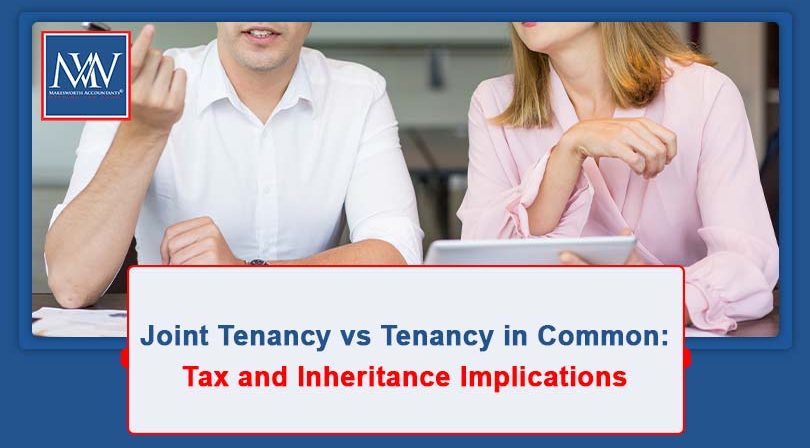
Joint Tenancy vs Tenancy in Common: Tax and Inheritance Implications
Under English property law, there are two ways in which property can be owned jointly – as joint tenants and as tenants in common. How the property is held can have tax consequences. It also determines what happens if one of the joint owners dies.
Joint tenants
Where a property is owned as joint tenants, the owners together own all of the property equally – together they own the whole rather than each owning a specified share.
Where the property is let, the tax implications depend on whether the joint owners are married or in a civil partnership. Where this is the case, the income is deemed to accrue in equal shares and each spouse/civil partner will be taxed on 50% of the income. This may not be the most tax-efficient split where the parties pay tax at different marginal rates, but where the property is held as joint tenants, unfortunately, this cannot be changed.
If the joint owners are not married or in a civil partnership, the income is allocated equally between the partners in the absence of an agreement to the contrary. However, the owners can jointly elect for a different income split; each joint owner will be taxed on the income they receive.
For capital gains tax purposes, each joint owner is treated as having an equal share of the property and any gain on disposal is split evenly between the owners, with each being taxed on their share of the gain. This rule applies regardless of whether the joint owners are married/in a civil partnership or not.
Where a jointly owned property is owned as joint tenants, if one joint owner dies, their share automatically passes to the surviving joint owners – they cannot leave it in their will to their children or other beneficiaries, for example. The deceased’s share will form part of their estate at death. Where the joint owners are married or in a civil partnership, the surviving spouse exemption will apply.
Tenants in common
The other option for owning property jointly is as tenants in common. Where this route is taken, each joint owner owns a specified share of the property. This can be helpful from a tax planning perspective.
Where the property is let, the default position for property owned jointly by spouses and civil partners is that it accrues to them equally. However, where the property is held as tenants in common and the underlying beneficial ownership is other than 50:50, they can elect (on form 17) for the income to be split by reference to their underlying shares. This can be useful to ensure that the income is taxed at the lowest possible marginal rate. Where necessary, the beneficial ownership can be changed by making a transfer from one spouse/civil partner to the other. This can be done without triggering a capital gains tax liability as transfers between spouses and civil partners are deemed to be done on a no gain/no loss basis. This option is not available where spouses/civil partners hold a property as joint tenants.
Where the co-owners are not married or in a civil partnership and the property is owned as tenants in common, income is allocated by reference to their ownership shares, and each owner is taxed on their share. However, the joint owners can agree on a different income split and will be taxed on the income they receive.
Spouses and civil partners can also take advantage of the no gain/no loss rule to change the underlying beneficial ownership before disposal to minimize the capital gains tax payable on any gain. This option is not available where the joint owners are not married or in a civil partnership.
On death, when a property is owned as tenants in common, the joint owner’s share will be passed on under their will or the intestacy provisions if they die intestate – it does not automatically pass to the surviving joint owners. This provides the scope for inheritance tax planning.
Partner note: ITA 2007, ss. 836, 837; TCGA 1992, s. 58.
For more information, Book a Free Consultation
Need Accountancy Support?
For information on bespoke training, or if you have any other questions for Makesworth Accountant, please fill in your details below
















 151
151